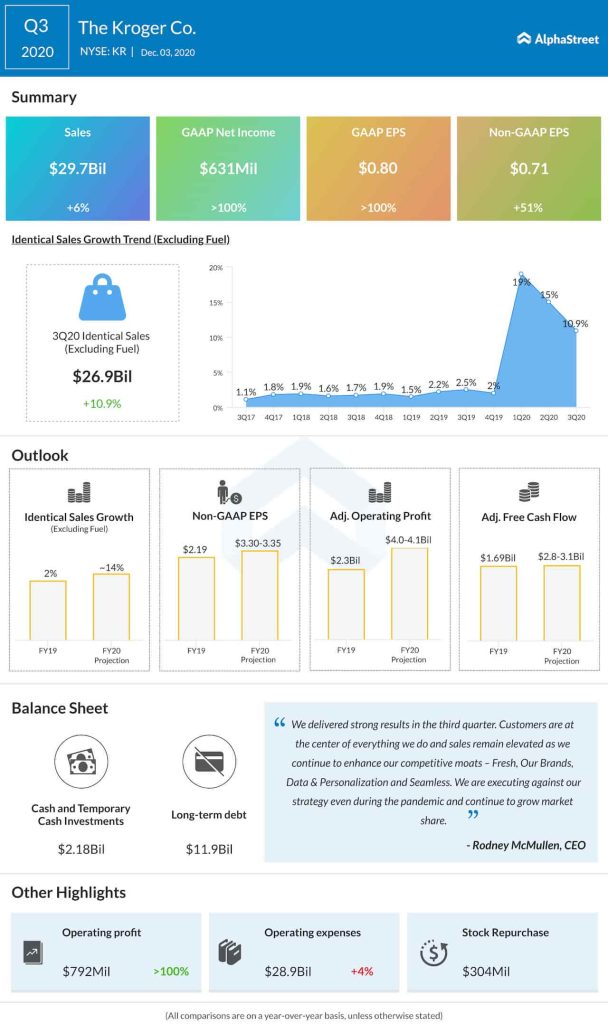Kroger
For the third quarter of 2020, sales rose 6% to $29.7 billion and adjusted EPS grew 51% to $0.71. Comparable sales rose nearly 11% while digital sales jumped 108%. For the full year of 2020, comps are expected to increase around 14% while adjusted EPS is estimated to grow approx. 50-53% to a range of $3.30-3.35.
General Mills
General Mills (NYSE: GIS) benefited from strong at-home food consumption which drove sales growth and market share gains. The company saw increases across its meals, baking and cereal products. During its most recent quarter, General Mills delivered a 7% growth in sales and a 12% increase in adjusted EPS.
The company expects the trend of eating at home to continue in the foreseeable future as people work from home and thereby spend more time indoors. The trend of at-home food consumption is also likely to be fueled by economic concerns as eating at home tends to cost less.
Campbell Soup
Campbell Soup Company (NYSE: CPB) gained from higher demand for categories like snacks and soups. The company expects the trend in snacking and cooking more meals at home to continue to drive growth going forward. In the first quarter of 2021, net sales rose 7% to $2.34 billion while adjusted EPS increased 31% to $1.02.
Hormel Foods
Hormel Foods (NYSE: HRL) benefited as traditional family dinners made a comeback thereby driving demand for foods that are easy to prepare. The trend of ordering food online drove growth in its ecommerce channel. Hormel saw sales increase for products like peanut butter, pepperoni and salsa cremosas. The company expects to see continued growth in its retail business in fiscal year 2021.
Tyson Foods
Tyson Foods (NYSE: TSN) gained from at-home food consumption and strength in its ecommerce channel. The company saw sales growth across its beef, pork and prepared foods segments. Tyson also sees meaningful growth opportunity in alternative protein with retail sales for plant-based products growing over 250% over the past year.
For the fourth quarter of 2020, net sales rose 5% to $11.4 billion while adjusted EPS grew 50% to $1.81. Ecommerce sales increased 126%. For FY2021, revenues are expected to be $42-44 billion.
Click here to read the full transcripts of the latest earnings conference calls
